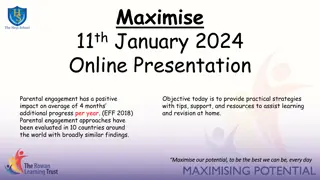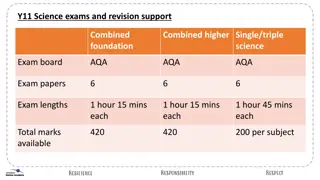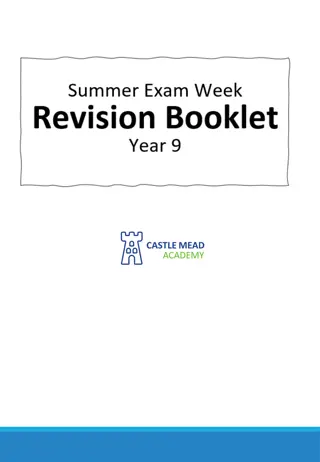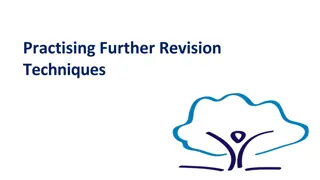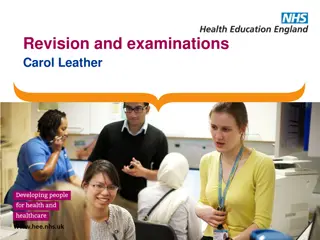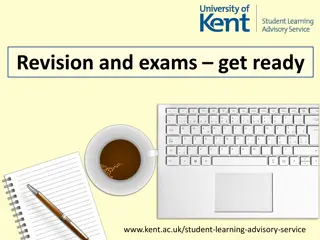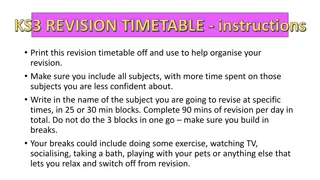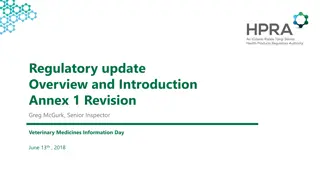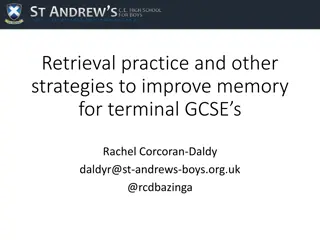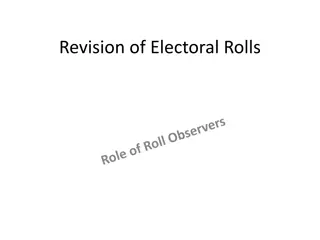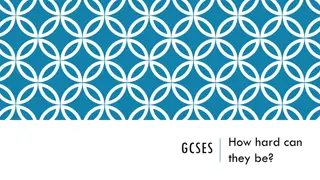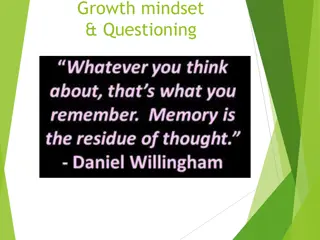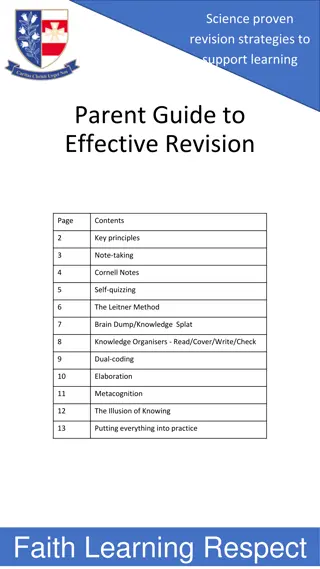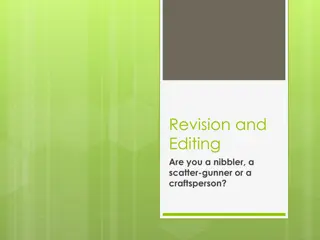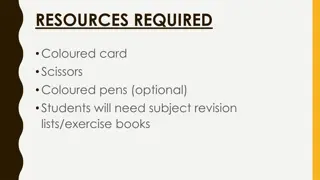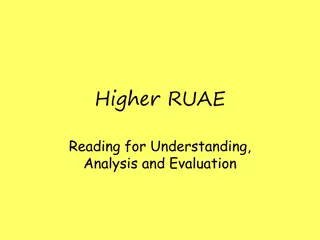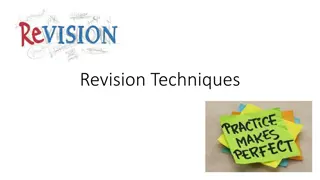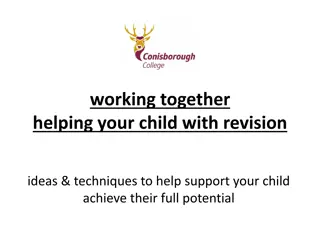Effective Revision Techniques for Improved Learning
Engage in active revision techniques to enhance learning efficiency. Strategies include organizing notes, condensing information, and utilizing visual aids like post-it notes. By following these methods, you can improve recall and retention, ultimately boosting your academic performance.
Download Presentation

Please find below an Image/Link to download the presentation.
The content on the website is provided AS IS for your information and personal use only. It may not be sold, licensed, or shared on other websites without obtaining consent from the author.If you encounter any issues during the download, it is possible that the publisher has removed the file from their server.
You are allowed to download the files provided on this website for personal or commercial use, subject to the condition that they are used lawfully. All files are the property of their respective owners.
The content on the website is provided AS IS for your information and personal use only. It may not be sold, licensed, or shared on other websites without obtaining consent from the author.
E N D
Presentation Transcript
Is amazing Is like a muscle it can be made to work more efficiently! http://www.bbc.co.uk/scotland/brainsmart/m emory/how_to_learn.shtml
Revision techniques will vary depending on what you want to be able to do Recall information/ key facts statistics - KU Follow particular procedures for applying your knowledge - Skills
Sort our your notes Organise them in sections Use colour Use folders and dividers Try to use logic, themes or topics to organise your notes Check for gaps at this stage Follow advice Ask your teacher
Good for condensing a large amount of information into smaller more memorable chunks Start with an A4 page of notes and condense into 4 post it notes Then condense these into 2 post in notes Then condense these into 1post it note Use different colours for different topics By processing the information in this way you will be helping it to stay in your long term memory.
These can be displayed in your room on a door or wall space.
Works in a similar way to using post it notes. You are processing information which helps recall. Several useful websites: https://www.examtime.com
Very helpful when you have to remember lists of things or processes. For example: The Planets (without poor Pluto) are Mercury, Venus, Earth, Mars, Jupiter, Saturn, Uranus, and Neptune. My Very Educated Mother Just Served Us Noodles.
Get together with a small group of people who are keen to do well in a subject Each choose a topic or part of a topic you are least confident in Teach that topic to the rest of the group Get feedback on how you did and what you could do to improve This will not work if you end up socialising!
Tape your notes and play them back to your self Randomly stop the tape and see if you can remember what comes next Tape a series of questions with space for answers and test your ability to recall the key facts
No use revising if you dont stop to check what you know You must also be able to show your understanding of the topic BBC Bitesize has revision notes and exercises to complete http://www.bbc.co.uk/bitesize/
1. You need to be sure your notes are organised 2. Revise a topic or sub topic 3. Get a friend or family member to ask you questions give them a list to choose from 4. If you can explain something to them in a way they can understand then you will understand it yourself 5. Don t be too impatient with them
Some people find if the walk about as they are trying to recall information it helps the process Visualising is a good way to recall information
There is no substitute for practice Most subjects have a process you can follow For example in Modern Studies and History read the sources, check what the question is asking you to do THEN DO IT! Use the number of marks as a guide on how much to write. The following link can be used to access past papers: http://www.sqa.org.uk/pastpapers/findpastpa per.htm
BODMAS Use the school s Edublog http://bodmaths.edublogs.org/
http://www.bbc.co.uk/scotland/brainsmart/b rain/#bb-emp




